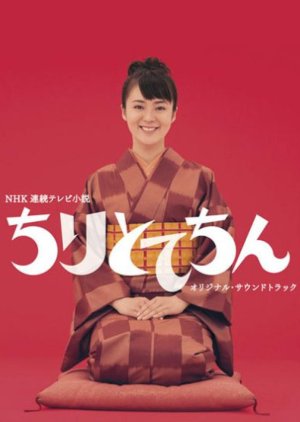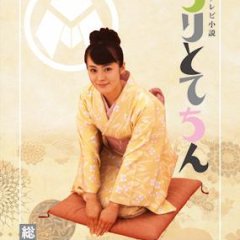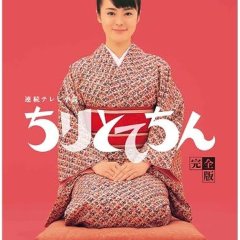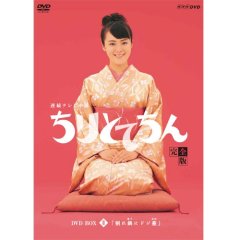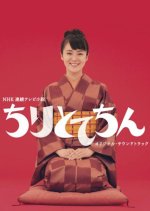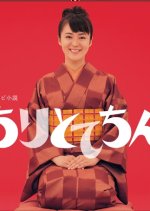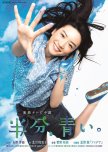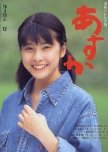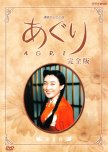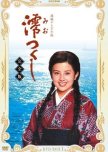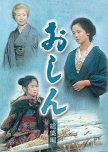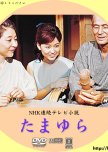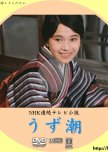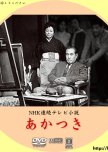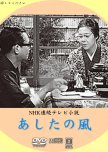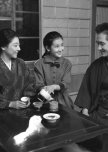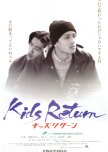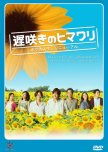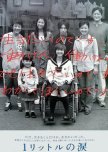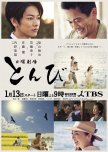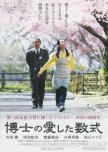- Français
- English
- magyar / magyar nyelv
- dansk
- Titre original: ちりとてちん
- Aussi connu sous le nom de:
- Scénariste: Fujimoto Yuki
- Réalisateur: Iseda Masaya
- Genres: Vie quotidienne, Drame
Distribution et équipes
- Kanjiya Shihori Rôle principal
- Sato MegumiWada Kiyomi "A" / "A-ko"Rôle Secondaire
- Wakui EmiWada Itoko [Kiyomi B's mother]Rôle Secondaire
- Matsushige YutakaWada Masanori [Kiyomi B's father]Rôle Secondaire
- Enami KyokoWada Koume [Kiyomi B's grandmother]Rôle Secondaire
- Yonekura MasakaneWada Shotaro [Kiyomi B's grandfather]Rôle Secondaire
Critiques

This is when rakugo comes into play. Kiyomi has always relied on her wild and vivid imagination to get away from her humdrum life and before she knows it, she finds herself being engrossed in the rakugo played from the cassette in her grandfather's workshop. Rakugo and laughter have a way of rekindling broken relationships that no word can. Through her bonding with her grandfather and exposure to the enchanting world of imagination named rakugo, Kiyomi gradually comes into her own and decides to stop being Kiyomi B and pursue a career as a rakugo performer.
Acting wise, I'm particularly impressed by Kanjiya Shihori for being able to play a rakogu performer at such a young age (22) and Emi Wakui, showed a new facet of her acting arsenal as a laid-back mother. I like that the series doesn't try too hard to convey a beautiful message about finding your soul like asadora. To add lightness to the series, there are many dream sequences of Kiyomi's fantasy and interludes of her family members reenacting classic rakugo stories. I suspect that part of the reason this series doesn't do too well rating wise (17% on average) is because its theme is rakugo, a 400-year-old tradition that may seem intimidating and old fashioned for the younger viewers in Japan. I consider a series or film to be good when the storytelling is so captivating that it makes you forget your apprehension about a certain theme, and Chiritotechin is one of them.
Cet avis était-il utile?

Cette critique peut contenir des spoilers
"People are like chopsticks..."
"Chiritotechin" is my tenth asadora. It is also the last one I'm watching before "Natsuzora," in which "Chiritotechin" lead Kanjiya Shihori also appears. "Chiritotechin" was a surprising gem from start to finish. I wished I had watched it prior to the two asadoras I recently finished, "Dandan" and "Manpuku." My gut isn't always right after all lol.Kanjiya plays Wada Kiyomi, a distinctive "negative" heroine for an asadora. By "negative," I mean that she's very pessimistic unlike the stereotypical hard-working, cheerful asadora heroine. Kiyomi's misery seemingly stems by her arrival in Obama, Fukui as a child to discover another girl with the exact same name as her. This begins Kiyomi's never-ending series of "tensai" (a disaster from heaven). "Chiritotechin" finds humor in these "tensai," leading me to quite literally laugh through my tears. Humor is one of the central themes of the series since it's centered around the art of rakugo storytelling. I particularly liked the reenactments of rakugo stories as well as Kiyomi's daydreams.
Besides Kanjiya's great performance, the cast is full of several heavy-hitters. The most notable being Watase Tsunehiko (from "Oshin"!) as Kiyomi's rakugo teacher and Wakui Emi as Kiyomi's hilarious mother. There's also Aoki Munetaka as Soso, Kiyomi's love interest. And Katsura Kichiya, Shigeyama Motohiko, and Kato Toranosuke as her rakugo "brothers" Sogen, Kosojaku, and Shiiso. Kichiya is actually a real-life rakugo storyteller and Shigeyama is a Noh actor. Sato Megumi had a surprisingly nuanced performance of Wada Kiyomi "A" (aka "A-ko") in the second half of the series. I guess that's enough with praising the cast, just know that they are all great. The only character I ended up not liking was Soso's apprentice (played by Tsujimoto Yuuki), but I don't know how the writer expected us to like a pathological liar.
Traditional arts are another central theme of "Chiritotechin." Kiyomi's grandfather and later her father are lacquered chopsticks craftsman. This is where the quote "People are like chopsticks..." comes to play. Designs are put onto the chopsticks between layers of lacquer. Kiyomi's grandfather compares this to People's experiences through life, which turns into something beautiful despite hardships. Her grandfather is also the person who introduces her to rakugo, another traditional art. "Chiritotechin" emphasizes the need to preserve these arts for future generations. As a non-Japanese person, I was surprised to find myself invested in both of these arts.
Equals parts hilarious and heartwarming, "Chiritotechin" made me laugh and cry in turn over and over again. An unforgettable asadora that I will carry with me for some time. I would give it a turn but some of the weeks after Kiyomi's marriage feel like filler (though are enjoyable nonetheless). Speaking of her marriage, the culmination of her unrequited love and subsequent wedding are some of the most hilarious episodes I've ever seen on television. "Chiritiotechin" had somewhat low ratings for an asadora (I think due to the subject matter and the way the series isn't exactly easy to jump into), but attracted die-hard fans. To me, this encompasses the drama perfectly. It doesn't have universal appeal, but if you love you'll LOVE it.
Cet avis était-il utile?

